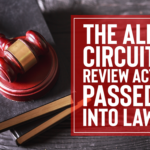In a case with wide-ranging implications for potential whistleblower plaintiffs, the U.S. Supreme Court recently handed down a decision in the case of Universal Health Services, Inc. v. United States ex rel. Escobar clarifying that a plaintiff may successfully bring a claim under the False Claims Act (FCA) where a defendant failed to disclose that the services it was providing violated material requirements of applicable law. The defendant in the case had argued that, because it had made no statement one way or the other about whether it complied with legal requirements, it could not be held liable under the FCA for making a false claim. But the Supreme Court disagreed with this argument, holding that such omissions could be the basis of a valid FCA claim, thereby making it easier for future whistleblower plaintiffs to bring claims against defendants who failed to meet legal requirements in providing services.
Unlicensed Medical Care Results in Teenager’s Death
The Escobar case involved a heart-wrenching situation in which a teenage Medicaid patient died while under the care of a mental health facility. The teenager had been prescribed medication to treat her bipolar disorder by a “purported doctor” at the facility and, as a result, she had several seizures and died at the age of 17. Her parents learned that medical personnel administering her care did not have proper licenses and were improperly supervised; in fact, only one of the five individuals treating the girl was licensed. One person who was held out as a PhD was never licensed and the “purported doctor” who prescribed the medication was not a doctor but rather a nurse. The parents sued, asserting that the facility had violated the FCA by submitting false claims that impliedly certified compliance with relevant licensing and supervision regulations.
The Court Validates the Implied Certification Theory
While the district court had thrown out the parents’ FCA claim as failing to state a claim because the hospital had not affirmatively stated its compliance with licensing requirements in its claim for payment, nor were such affirmative statements a condition of payment. The Supreme Court, in a unanimous decision authored by Justice Thomas, clearly held that the district court’s reasoning was wrong, and that plaintiffs could pursue FCA claims based on an “implied certification theory.” What this means is that plaintiffs can successfully argue that a defendant making a claim for payment to the federal government is making an implied statement that its services comply with applicable legal, regulatory, or contractual requirements, and a failure of the defendant to actually comply with those requirements can be found to be a false statement justifying an FCA claim.
Significantly, the Court also ruled that characterizing a requirement as a “condition of payment” (in contrast to a “condition of participation,” particularly for Medicare claims) does not determine whether compliance with the requirement creates liability, finding that, “Defendants can be liable for violating requirements even if they were not expressly designated as conditions of payment.” Instead, the determinative factor is whether the defendant “knowingly violated a requirement that the defendant knows is material to the Government’s payment decision.”
Future Decisions May Hinge on Question of Materiality
While fully embracing use of the FCA to punish defendants who submit false claims based on fraudulent misrepresentations, the Court noted that liability is created only when the violations are “material” to the government’s decision to pay a claim. The materiality requirement is “demanding” and “rigorous” and “cannot be found where noncompliance is minor or insubstantial.” And, in a passage that is sure to provoke hours of argument and litigation, the Court noted that:
“…if the Government pays a particular claim in full despite its actual knowledge that certain requirements were violated, that is very strong evidence that those requirements are not material. Or, if the Government regularly pays a particular type of claim in full despite actual knowledge that certain requirements were violated, and has signaled no change in position, that is strong evidence that the requirements are not material.”
While Escobar soundly defeated defendants’ claims that “conditions of participation” and “implied certifications” cannot create FCA liability, the Court’s application of the materiality standard will provide fodder for defense lawyers to invent new arguments attempting to justify their clients’ wrongdoing. Kreindler & Associates is ready to work with it clients to beat back these new challenges and continue its tradition of bringing bad guys to justice.




